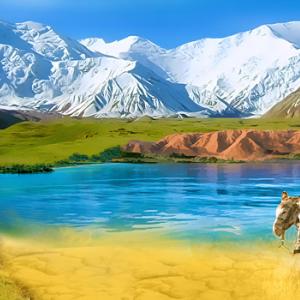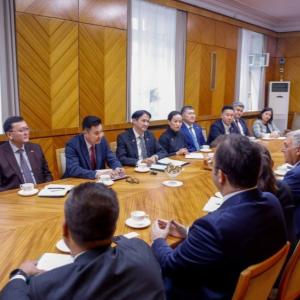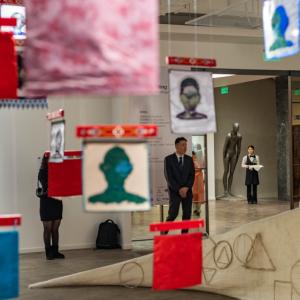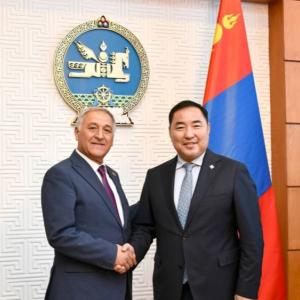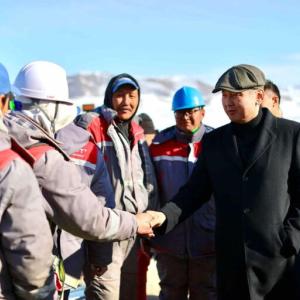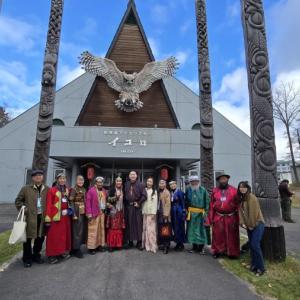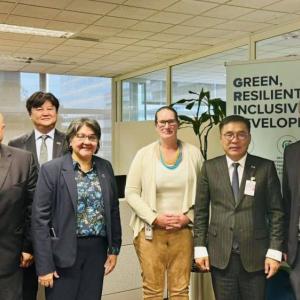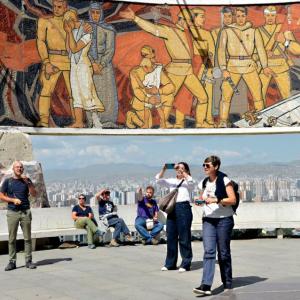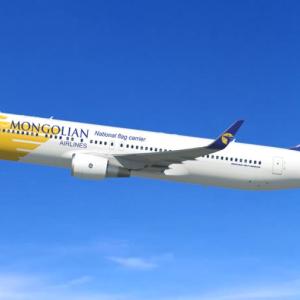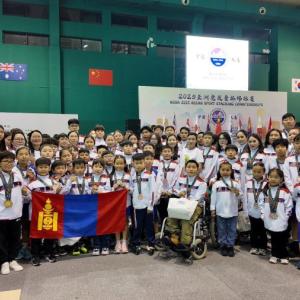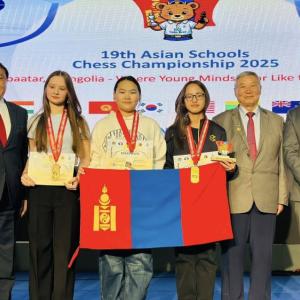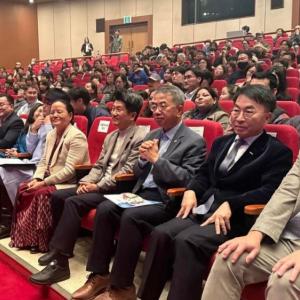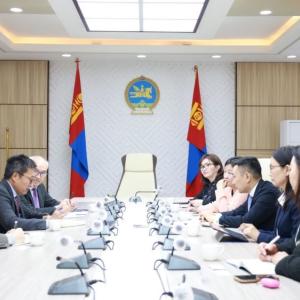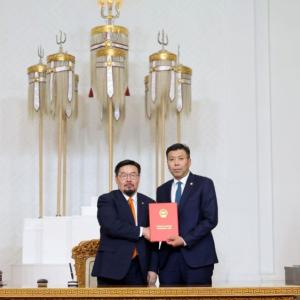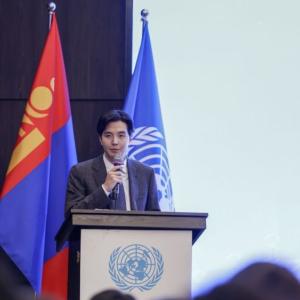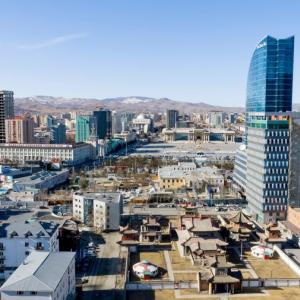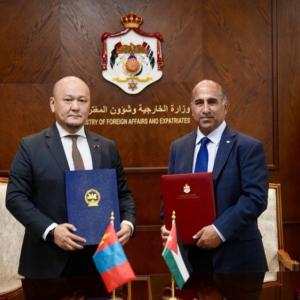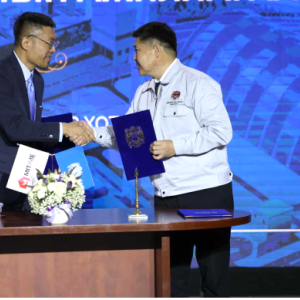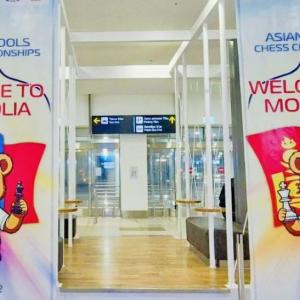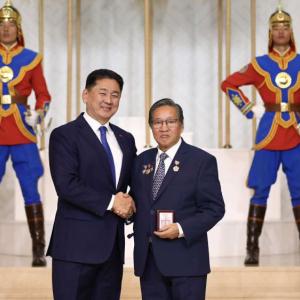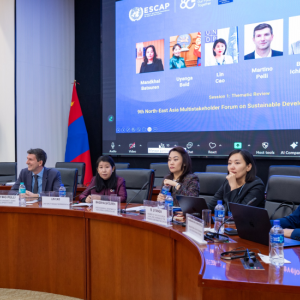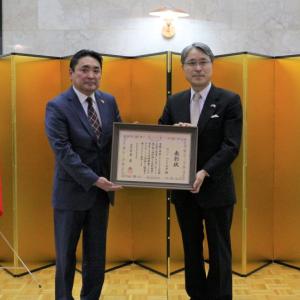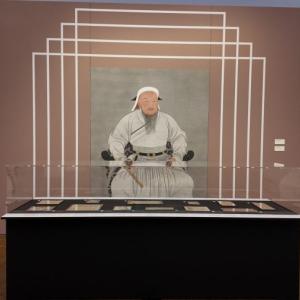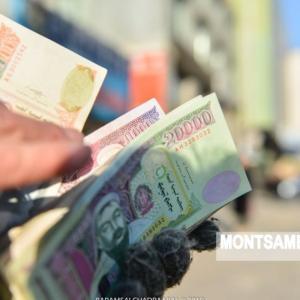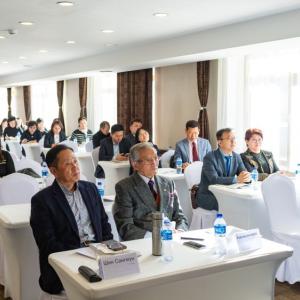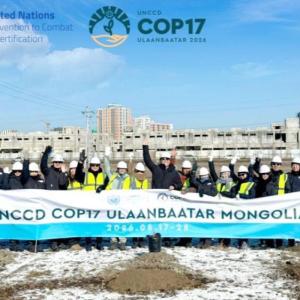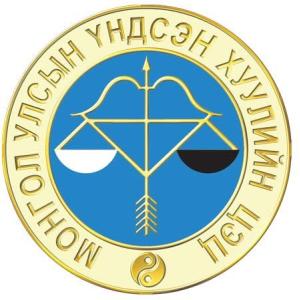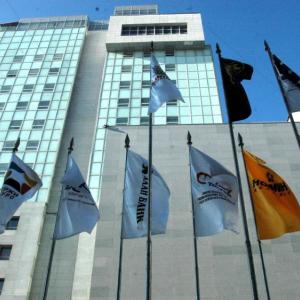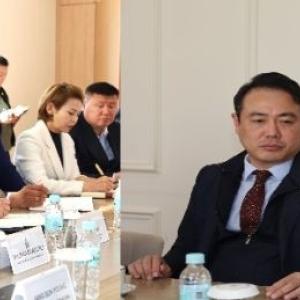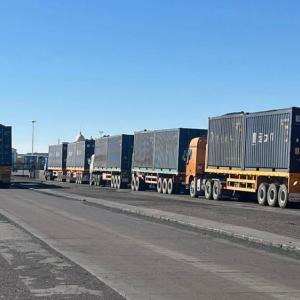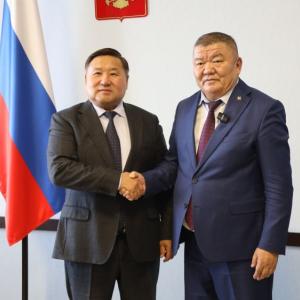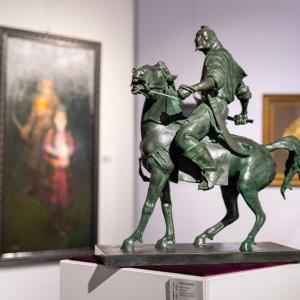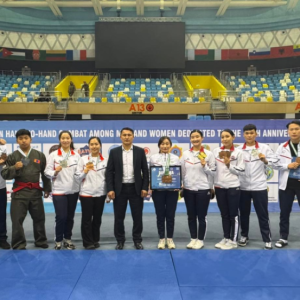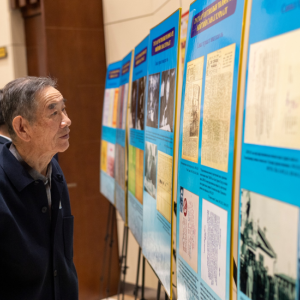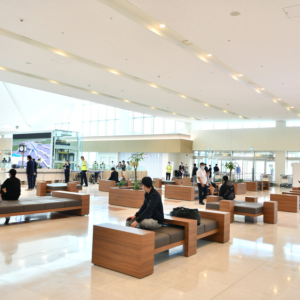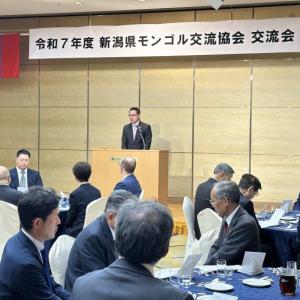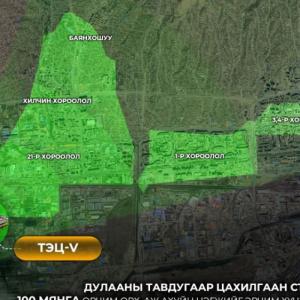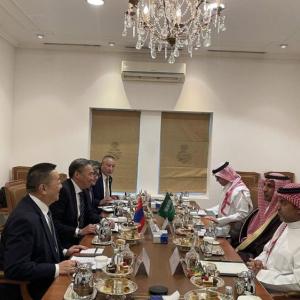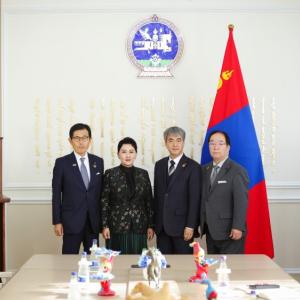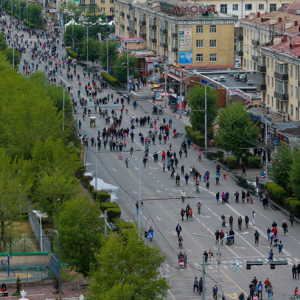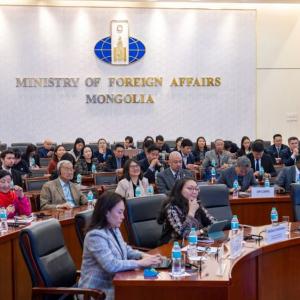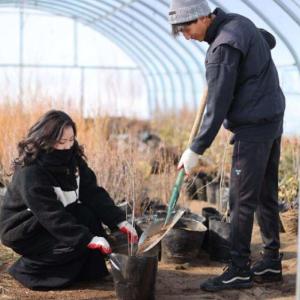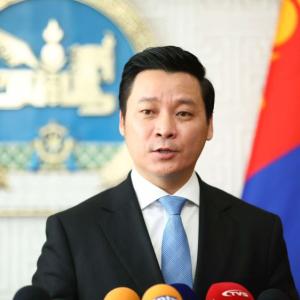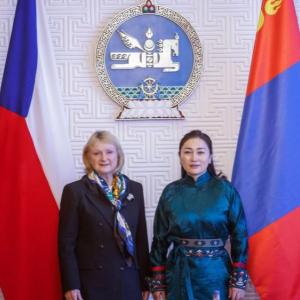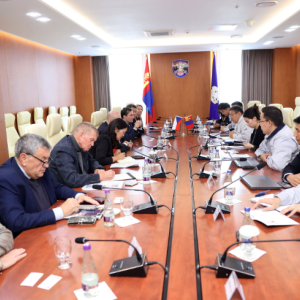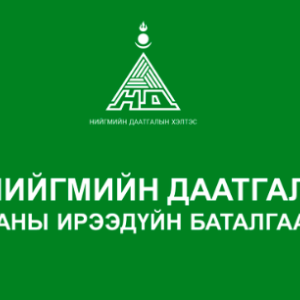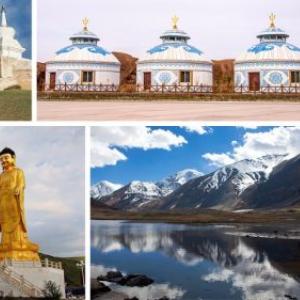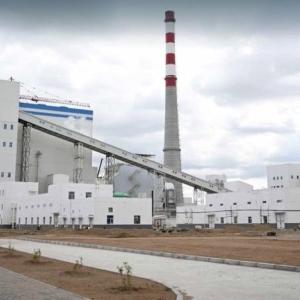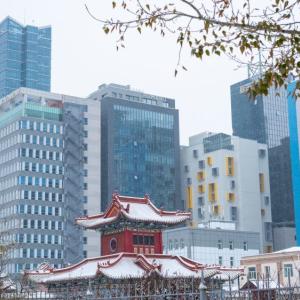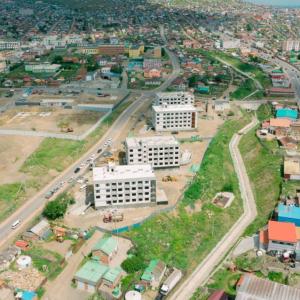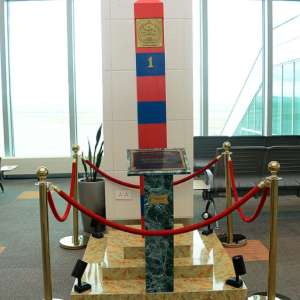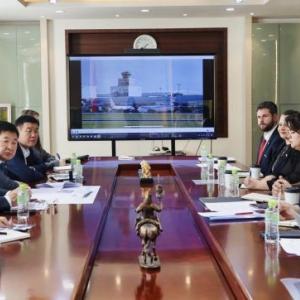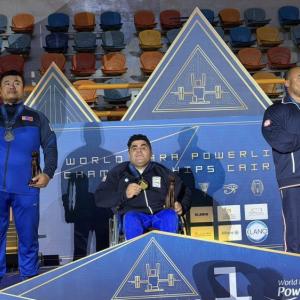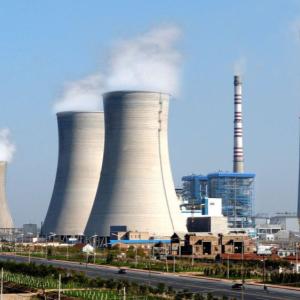Khurelsukh Ukhnaa: Mongolia is Working Consistently towards Strengthening Global and Regional Peace and Security
Politics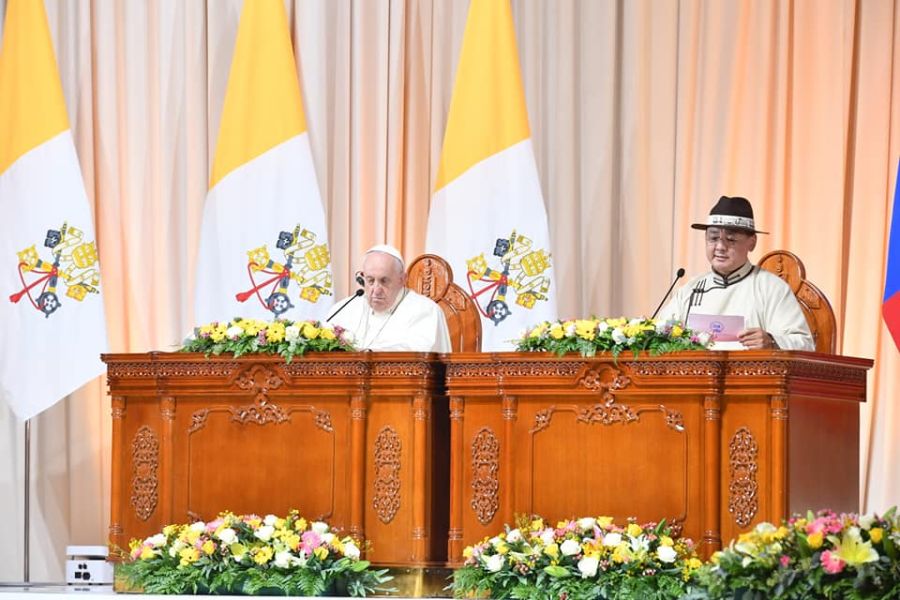
Ulaanbaatar, September 2, 2023 /MONTSAME. Head of the Holy See Pope Francis is paying the State Visit to Mongolia at the invitation of the President of Mongolia Khurelsukh Ukhnaa as the first-ever high level visit from the Holy See to Mongolia. The President of Mongolia Khurelsukh Ukhnaa and Head of the Holy See Pope Francis have just made public address. We present full transcript of the public address of the President of Mongolia Khurelsukh Ukhnaa.
Pope Francis,
Ambassadors and
Representatives of Diplomatic Missions accredited to Mongolia,
Distinguished guests,
I extend to all of you
my heartfelt greetings on this historic day, when Pope Francis is paying the
first-ever state visit to our exquisite country, land of the eternal blue sky, the
sacred hearth of the Mongol
Empire, the birth place of Chinggis Khaan, Man of the Millenium.
This state visit has a
historical prominence in that it is being held on the occasion of the 860th
anniversary of Chinggis Khaan and the 30th anniversary of the
establishment of diplomatic relations between Mongolia and the Holy See.
The relations between
Mongolia and the Holy See have a history originating from the era of The Great Mongol Empire founded by Chinggis Khaan.
Eight centuries ago, in
1246, Archbishop Plano Carpini, the envoy of the Pope Innocent IV, arrived in Karakorum, the capital of the Great Mongol
Empire, and presented the Pope’s message to Guyug Khaan, grandson of Chinggis Khaan, that instituted the foundation of historical ties
between our countries.
It should be acknowledged that Archbishop Plano Carpini was the first ever European envoy to enter
the court of the Great Mongol Empire to establish official relations.
At that time, Papal envoy Plano Carpini had the great occasion to be invited to the
Coronation ceremony of
Guyug Khaan as a Guest
of Honor.
His written
work “History of the
Mongols” which
was based on memos of his journey,
bestowed to the world, was the historical piece that introduced the history and culture of the Mongols to the Western world and to this day, it still plays a significant role for Mongol
studies exploring Mongolia and Eurasia of
the Middle Ages.
It is, indeed
chronologically and numerically a fortunate occasion that Pope Francis of
the Holy See pays a visit
to
Mongolia, the sacred heart of the Mongol Empire, precisely
777 years since Plano Carpini’s journey to Mongolia.
Since then, the relations between our two countries had been continuing with the exchange of envoys and letters such
as the letter of Il Khaan Abaga to Pope Gregorio X in 1274, Pope Nicolas III
to Khubilai Khaan in 1278, Il Khaan Argun to Pope Honorius IV in 1285, Pope
Nicolas IV to Il Khaan Argun in 1288, 1289, Il Khaan Argun to Pope Nicolas IV
in 1290, Il Khaan Gazan to Pope Boniface VIII in 1302 to name a few. These
exchanges of numerous envoys and official letters as well as the reports about
the communications between
them were preserved as important
historical sources of the history of the relations between our two countries.
These historical
sources not only bear witness to
active engagements for official negotiations and diplomatic relations between
our two countries at that time, it also presents an excellent testimony of compelling assurance for a solid foundation, determining factor and essential feature for the further consolidation of extensive ties between Western
and Eastern societies.
But in the modern-day Mongolia and the Holy Sea have been observing the 31st Anniversary of the establishment of diplomatic relations between our two countries and we have been continuing our humanitarian collaboration as well as our cooperation in the areas of culture, education and science.
As our relations
have flourished, I extend our paramount appreciation to Pope Francis for his
first-ever state visit to Mongolia.
Esteemed guests,
Chingis Khaan and his
successors, ancesters of all Mongolians, instituted the Great Mongol Empire. They established
“Pax Mongolica” by uniting all the Mongol tribes, ending century
long wars and conflicts in
the East and West. These achievements were prerequisites for a peaceful coexistence and harmony among nations and people of Asia and
Europe,
which in return created a favorable environment and the opportunity to study and research, to write and compose, to produce
and construct, to develop arts, sciences and education, fostering prosperity as
a whole.
As a result of these attainments world renowned scholars and international organizations accentuate
and reaffirm that the Mongols have significantly contributed to the world history. Achievements of Pax Mongolica have created the solid
grounds for the development of mutual respect between different nations of the
world, cherishing each
other’s values and identities,
enabling peaceful coexistence of
various civilizations.
They also confirm that flourishing of diplomatic relations, postal system, transportation, economy and trade, science, culture as well as tolerance
of religious freedom and principles of rule of law were invaluable heritages inherited from the Mongols to the
mankind.
The state principles to respect statehood, striving for peace with the ultimate goal to foster
harmony and unity was inherited
to
us from Chinggis Khaan and
this legacy has been relaying throughout many centuries, and today Mongolia is pursuing a peace-loving, open, independent, and
multi-pillared foreign policy, and
we are working consistently towards strengthening
global and regional peace and security.
With a view to peacefully contributing to the international community’s efforts in addressing regional and global security challenges, Mongolia has been offering its initiatives and we are actively engaging with our two eternal neighbors as well as our third neighbours.
Mongolia has been
contributing to the noble endeavors for ensuring global peace and security and diligently fulfilling
its commitments to the international community with honour, while sending over
20 thousand peacekeepers to 15 UN Peacekeeping Operations, in the most precarious places of the world, for the last 20 years.
Mongolians have ancient traditions to respect spiritual freedom and pluralism. In the era of Chinggis Khaan and the Great Mongol Empire, our ancient capital Karakorum was home to 12 monasteries of different religions co-existing peacefully side by side consisting of Buddhist, Christian and Islamic religious traditions and Mongol Kings and statesmen had a deep respect for each religion, and every church and temple had the privilege to be exempt from state taxes.
These principles
of
respect for spiritual freedom and belief have been inherited to us from
our ancestors and
these principles were
declared and preserved and
protected in the Constitution of Mongolia.
Since ancient times, we Mongolians, with nomadic heritage, have been preserving and treasuring the Mother Earth
and nature to pass it on to our future generations.
Pope Francis’ words, his position and policies on world climate change, food scarcity, food security and supply, are entirely in line with our national movements “Billion Trees”, “Food Revolution”, and “Healthy Mongolian” that are being implemented throughout the country. Thus, Mongolia will stand ready to cooperate with the Holy See in all areas to protect the environment, food and security, which is the backbone of a sustainable development and the destiny of mankind.
Moreover, I am convinced
that our cooperation in humanitarian deeds, culture, science, education,
history arts and archives, will
be constantly further strengthened.
Pope Francis,
This state visit to
Mongolia will inaugurate a new pillar to our peace-loving and multi-pillared foreign policy as
well as
a new page in the history of our
countries, and will make an exceptional contribution to further strengthening
our relations and cooperation, which will be engraved with golden letters.
On behalf of the people
of Mongolia, I extend, to Pope Francis and to all the people of the world, my best wishes of good health, happiness, and well-being.
By the Power of Eternal Heaven, May the mankind be in lasting harmony!
 Ulaanbaatar
Ulaanbaatar










